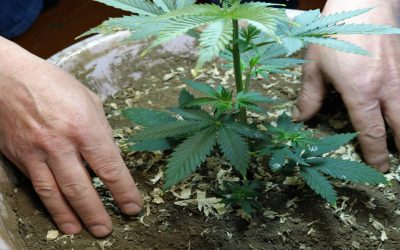A recent observational study, led by UK-based researchers, unveiled potential benefits of medical cannabis for those with ADHD. Over the course of a 12-month study, patients with ADHD who used cannabis showed improvements in anxiety, sleep, and overall well-being. Does weed help with adhd? The majority of patients tolerated the cannabis treatment well, with less than twenty percent experiencing minor side effects. While the findings aren’t definitive, they strongly advocate for additional research into the connection between cannabis and ADHD.
Exploring Cannabis as an Extended Treatment Option for ADHD
ADHD, an abbreviation for attention-deficit/hyperactivity disorder, is a neurodevelopmental condition commonly characterized by inconsistent attention, hyperactivity, and impulsivity. While traditionally classified as a disorder, many experts now perceive it as a form of neurodiversity, highlighting the natural variations in how different brains process information.
Does weed help with adhd? From this perspective, ADHD presents certain strengths such as creative thinking, heightened levels of energy, and deep concentration. However, alongside these positive aspects, individuals with ADHD also face challenges such as difficulties in maintaining focus, managing impulsivity, and coping with restlessness. Moreover, they are at a higher risk of experiencing sleep disturbances, anxiety, and depression. These challenges can significantly impact various aspects of life, including daily functioning, academic or professional performance, and social interactions.
Cannabis Impact on ADHD: A Year-Long Exploration
In a recent study of adhd and cannabis, researchers examined data from the UK Medical Cannabis Registry involving 68 individuals diagnosed with ADHD to explore the long-term impacts of cannabis use. Among these participants, 80% were already using cannabis. By analyzing patient-reported outcomes and their CBD and THC doses over intervals of 1, 3, 6, and 12 months, they observed enhancements in anxiety levels, sleep quality, and overall health-related quality of life. Surprisingly, only 11 participants reported negative effects, and nine discontinued other ADHD medications during the study period. Notably, anxiety and sleep quality consistently improved throughout the year, with significant improvements in health-related quality of life noted in the initial six months. However, by the end of the 12-month period, these improvements regressed to baseline levels, with no significant difference between existing cannabis users and non-users. The study also highlighted moderate adverse effects such as insomnia, concentration difficulties, lethargy, and dry mouth. Nevertheless, the findings offer valuable insights into the effects of adhd and weed, as they stem from real patients using actual cannabis, rather than relying on population surveys or laboratory experiments.
Additional research is needed to gain a comprehensive understanding of the connection between ADHD and cannabis. While this study suggests that cannabis might alleviate certain ADHD symptoms, its conclusions are limited. The study cannot conclusively demonstrate that cannabis directly leads to improvements; it could simply be a coincidence. Furthermore, it did not explore the effects of various cannabis consumption methods and strains, which could produce different outcomes. Subsequent research should address these factors to avoid assuming consistent results. Additionally, the study primarily involved male participants, potentially biasing findings on how cannabis affects different genders. Moreover, since many participants were already using cannabis before the study, their tolerance levels might have influenced the results, potentially downplaying the benefits of cannabis. Despite these limitations, the study offers promising evidence that cannabis could help manage ADHD-related anxiety and sleep disturbances. Nevertheless, further research is essential to validate these findings and establish optimal guidelines for using cannabis in ADHD treatment. Individuals considering cannabis for ADHD management should seek personalized advice from a specialized physician.










0 Comments